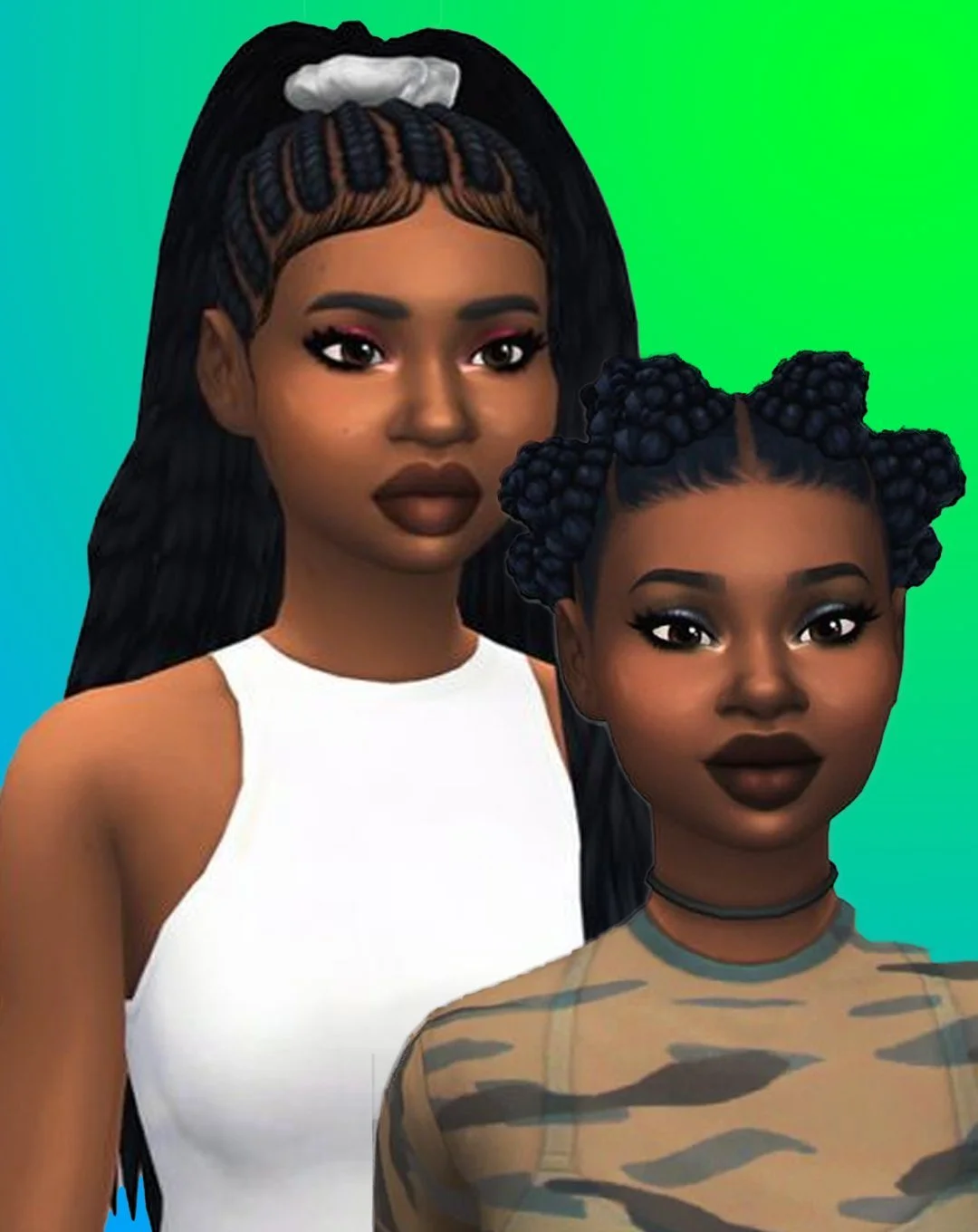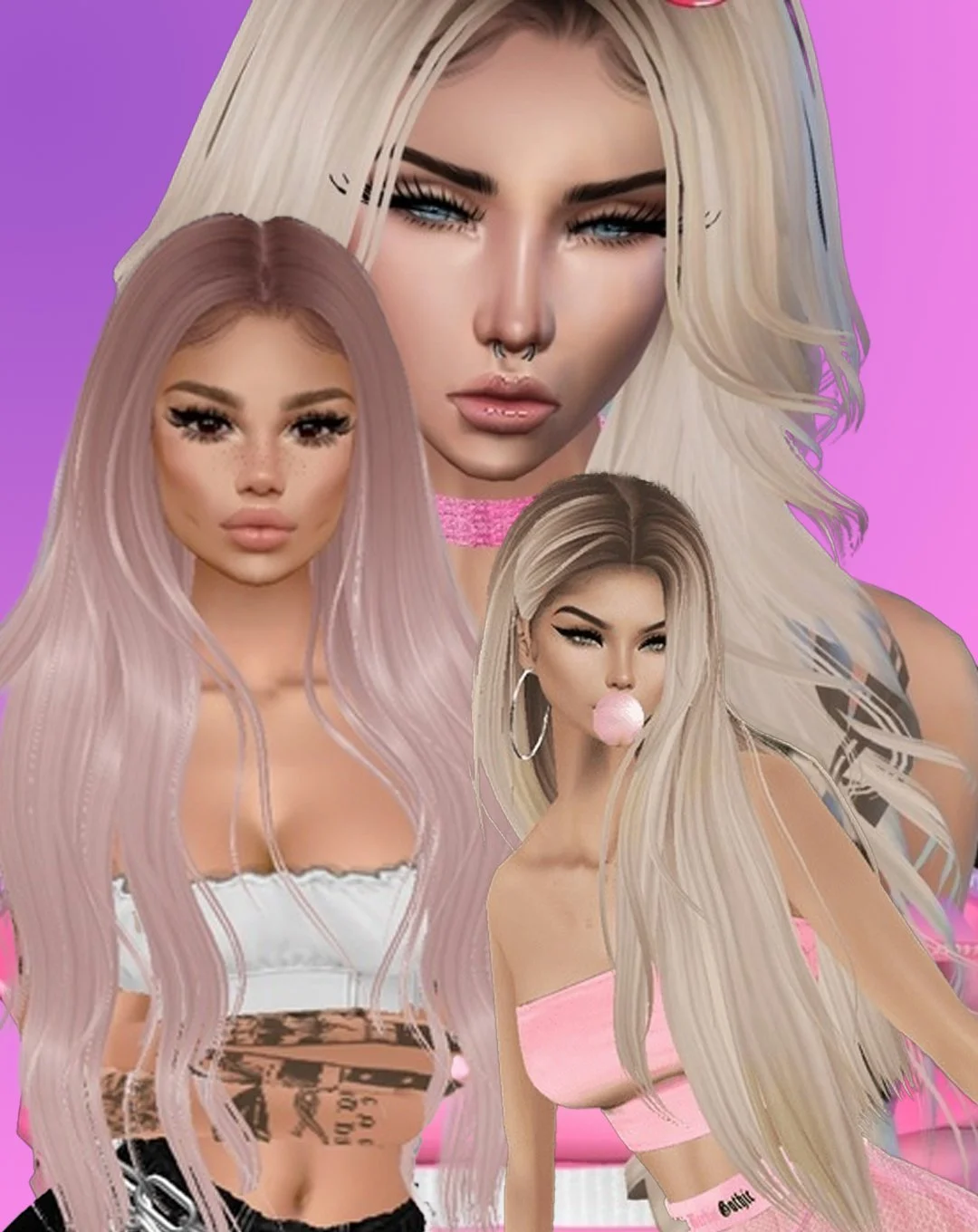Creating Myself as a Black Girl in the Metaverse
Ever since the pandemic began and confined so many of us to our screens, people have been newly interested in the metaverse. But my first foray into the metaverse was about ten years ago, long before coronavirus upended our lives. I was around twelve or thirteen when I made my account on IMVU, a vaguely dystopic online metaverse game (IMVU’s website defines the metaverse as a 3D, virtual world "where people can interact with each other through their avatars"). On IMVU, I could dance, party, and travel with other gamers in the digital world.
I don’t remember what my username was on the site, but I distinctly remember what my avatar in the game looked like. She was tall and thin, with wavy brunette hair. I changed her outfit frequently, depending on what activity she was up to that day, but I remember that her standard outfit was a light green spaghetti-strap tank crop top and skinny blue jeans. And she was white, with big blue eyes. If she walked out of the screen into the physical world, she’d probably remind you of Kendall Jenner. She couldn’t have looked anything less like me—where she was tall and slender, I was short and squat. My thick hair clung to my scalp in short cornrows, while my avatar’s hair flowed endlessly down her back. And our skin tones were worlds apart: I’m a dark-skinned Nigerian, while my avatar looked like she stepped out of a sun-drenched beach in Mykonos.
I hated my appearance in the real world. I always looked very different from everyone around me in my small, suburban New Jersey town. In every classroom or grocery store I’d walk into, my skin was always the darkest, and my hair was always the shortest. I remember enviously staring at the blonde Rapunzels that surrounded me every day at my all-girls school, wondering what I’d have to do to my hair and skin to get it to look more like theirs. I’d look in the mirror and daydream about what I would look like with lighter skin.
___STEADY_PAYWALL___
When I came home and logged into IMVU, everything I hated about myself vanished with a few clicks of my mouse. I seamlessly entered the body I desperately wished to have, transforming myself into a pixelated fabrication. Through my tan, leggy, stomach-baring avatar, I became the girl I so wanted to be so badly—white, thin, and undeniably femme. I used the metaverse to reject myself entirely, to abandon my reality for a fantasy. Things were just easier in the digital world, where I could fix all my perceived imperfections in the Settings tab. To be fair, ten years ago, the Settings tab was undeniably more limited than it is now. There were much fewer options for textured hair, dark skin, and facial features that looked like mine. For a young Black girl who was already made to feel undesirable by the real world, the absence of the features needed to make an avatar that looked like me subconsciously reinforced my feelings of insecurity. I couldn't accurately create myself in the metaverse, so instead, I created what I wish I was.
As I grew up and got busier with school, I stopped playing IMVU. I still grappled with intense feelings of insecurity and shame, but things started to improve when I entered high school. I became friends with more and more amazing Black women, and I began to consciously interrogate how racism was affecting my self-perception. In college, I got to meet even more beautiful, kind people that looked like me, understood me, and encouraged me to love myself. My negative feelings towards myself didn’t go away completely, but I slowly took steps toward healing.
I didn’t reenter the metaverse until the pandemic began. One day during those first few weeks of lockdown, I felt the urge to escape the overwhelming combination of boredom and anxiety that I felt after weeks spent indoors, hiding from an invisible enemy. On a whim, I opened up my laptop and spent twenty dollars so that I could enter a new digital space: the world of the Sims. The Sims is a single-player game where you don’t get to interact with other users, so it’s technically not the metaverse. But many look at it as an early inspiration for the metaverse because of its detailed 3D environment and life simulation capacities. I’d never gotten around to playing the Sims before, even though it’s been around for ages, and many of my friends have been trying to get me to play it for years. But during the early days of quarantine, when I spent day after day indoors, bound to my laptop, the Sims was the perfect escape. It was an easy trade: each hour I spent in the game was an hour I didn’t have to spend in the real world.
Just like I did when I was younger playing IMVU, I used The Sims in order to avoid interacting with the unpleasant realities of the real world. But the Sims I created looked nothing like my old IMVU avatar. In fact, they looked a lot like me: dark skin, box braids, big lips, brown eyes. I quickly filled up my world with beautiful Black and brown Sims who worked, played, and WooHooed together. My Sims were reflections of me. I no longer felt the need to pretend I was something I wasn’t.
“I still catch myself comparing myself to girls who look like my IMVU avatar. But over the past decade, I have begun to embrace myself and interrogate my understanding of beauty.”
A few weeks ago, I saw an advertisement for IMVU that made me realize how the avatars I’ve created over the years have reflected the way that I think about myself. When I first entered the metaverse, I hated everything about myself, and I used my avatar to escape all the things I couldn’t change about myself in real life. It took ten years and a lot of emotional work (and increased options in the Settings tab) before I was able to accept myself and render myself more truthfully in the digital world.
I still catch myself comparing myself to girls who look like my IMVU avatar. But over the past decade, I have begun to embrace myself and interrogate my understanding of beauty. Being able to depict myself accurately in the metaverse is just one of many steps on my journey of self-love, but it’s an important one. For Black girls trying to make their way in the metaverse, know that you are not alone, and you deserve to see and celebrate yourself in the digital realm.
Words: Babi Oloko | First collage images: J0M, IMVU, Tumgir | Second collage images: Maxis Match CC World


